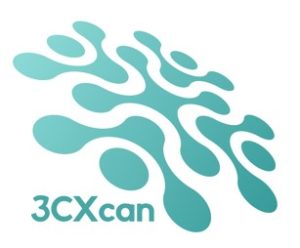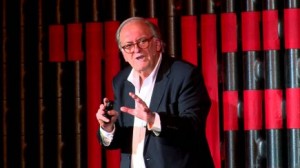In a large company, what do a leadership development, a culture change and a business integration programme typically have in common? That they don’t talk to each other.
Fragmentation of ‘corporate initiatives’ is a common disease in many companies. Like those original French cakes, they live in a mille-feuille world of parallel layers on top of each other with no connection other than nominal.
Leadership development workshops and activities are cascaded down via the organization’s pipes. Cultural change programmes are equally cascaded down in the same format, which is even worse since cultural change is not instructional top-down communication (not even instructional top-down communication, awareness, rational and emotional engagement; that is cultural broadcasting). Business integration programmes are structured as process integration (and, perhaps, simplification or consolidation), usually seen these processes as independent pieces of the machine that can be polished, oiled or upgraded.
The tragedy of it all, is that leadership development runs independently from culture change and neither of them seem to have any influence on business integration.
This mille-feuille, multi-layer approach is very common and, very often, attempts to explain that this is not the case, and all are part of a global HR strategy, or business strategy, is equivalent to saying that all trains to the south of England depart from Waterloo station. Yes, they do, then they don’t touch each other, ever.
In 2020, the answer to this poor state of affairs, which has remained unchallenged for decades, is to think and structure, in terms of a ‘platform’. A (mobilizing) platform is an ecosystem of behavioural rules, ways of collaboration, peer-to-peer networks and a single ‘engine room’ in which all human capital initiatives sit, be it leadership, culture, talent etc. Viral ChangeTM is for us, that mobilizing platform. It is inconceivable that ‘initiatives’ could have a life of their own. That does not mean that each of them don’t have their own sponsors, accountable people or partial goals. But they all sit and live together.
In my experience, once this is acknowledged and seriously tried, it is not as difficult as it seemed originally. Most sensible people would agree that it makes sense, despite not being the traditional way we have managed these ‘programmes’.
A platform is not a collection of methods. It is a host with rules and principles. For example, top-down communication has limited effectiveness, peer-to-peer is the stronger source of influence in the organization, behaviours are the only thing visible and scalable, the informal organization has richer innovation mechanisms than the formal one, etc. Once these principles and their social algorithms (‘if so, we would always do A instead of B’) are in place, the mobilizing platform is the universal host.
In 2020, there are ways to stop corporate mille-feuille management. A single platform of mobilization and engagement must be in place not multi-initiatives competing with each other for air time, players and money.
________________________________________________________________________________________________
Identify and understand your organization’s informal social networks. Do you want to know:
- HOW PEOPLE TRULY COMMUNICATE AND COLLABORATE WITH EACH OTHER IN YOUR ORGANIZATION?
- HOW INFORMATION FLOWS IN YOUR ORGANIZATION?
- HOW USEFUL PEOPLE FIND THE INFORMATION THEY RECEIVE?
- HOW PEOPLE WORK TOGETHER ACROSS DEPARTMENTS AND SITES?
- HOW WELL PARTICULAR DEPARTMENTS ARE CONNECTED WITH OTHERS?
- HOW THE INFORMAL CONVERSATIONS TAKE PLACE IN YOUR ORGANIZATION?
With 3CXcan, a simple online survey, we can tell you. We have turned organizational network science into real practice: we uncover your networks with no pain, efficiently, fast and with absolute confidentiality. Find out more.
Contact us now for a free virtual consultation.

________________________________________________________________________________________________
Dr Leandro Herrero is the CEO and Chief Organization Architect of The Chalfont Project, an international firm of organizational architects. He is the pioneer of Viral ChangeTM, a people Mobilizing Platform, a methodology that delivers large scale behavioural and cultural change in organizations, which creates lasting capacity for changeability.
Dr Herrero is also an Executive Fellow at the Centre for the Future of Organization, Drucker School of Management. An international speaker, Dr Herrero is available for virtual speaking engagements and can be reached at: The Chalfont Project.
His latest book, The Flipping point – Deprogramming Management, is available at all major online bookstores.




Would you like to comment?